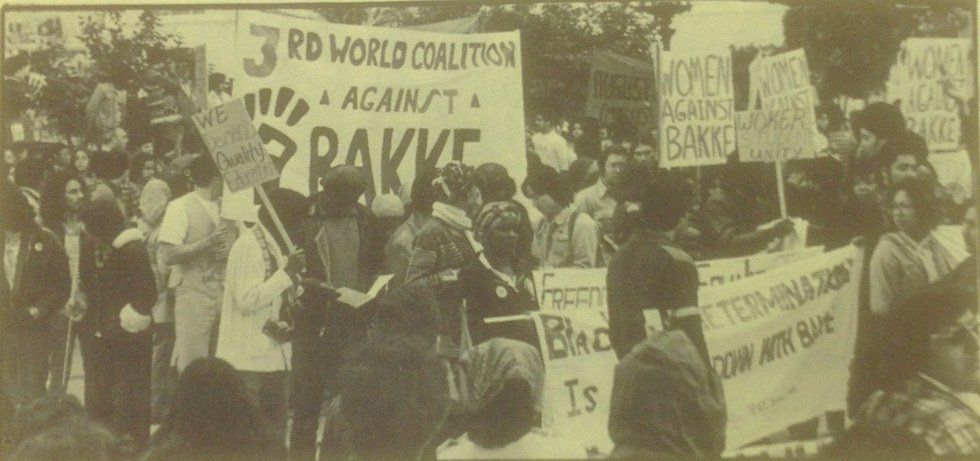Race, an element that distinguishes skin color, identity, and culture, seems to be a contentious topic in our society today. The fact that race is even a considered factor in today’s institutions seems archaic to me, and I think it should be done away with since the only race that matters is the human race.
Affirmative action and the development of race-based quotas in the United States emerged from the Civil Rights Act of 1964, and it continues to be a precedent that shapes the “inclusive actions” made by institutions in the nation in order to reverse the effect of historic racial discrimination against minority groups. While I understand the nature and logic of this legislation, I have become increasingly opposed to it. There is sufficient evidence that can be presented from the fact that affirmative action and race-based quotas are simply a facade to a supposedly more inclusive environment. Inclusiveness should solely be based on merit, and if race is taken into consideration, it creates a system in which skin color determines the quality of the individual. I do not think race should take precedence over an individual’s ability, and the truth is, affirmative action gives precedence to race over merit. This system supposedly creates more equality by dictating a quota and creating an exclusive environment in which certain demographics have to be admitted. This, in turn, lowers the standard of admission into these institutions, and this has become evident over the past 40 years.
Regents of the University of California v. Bakke is a Supreme Court case that proves the discriminatory nature of race-based quotas. Allan Bakke, a Caucasian male who was a veteran of the Vietnam War, graduated with honors in engineering from the University of Minnesota, had a master’s degree in engineering from Stanford, and worked for NASA. He decided to apply for admission into the medical school of the University of California at Davis but was denied admission twice on the basis that he did not meet a certain racial quota because he was a Caucasian male. The University of California became part of the affirmative action program that reserved a certain quota for minorities. Bakke was overwhelmingly qualified for admission into the program, but because he did not fit a certain racial quota, he was denied admission. Bakke then proceeded to sue the University for violation of the Equal Protection Clause which grants equal protection to an individual irrespective of race.
The special admissions program was deemed unconstitutional because it dismissed an applicant solely based on his race. Bakke was more than qualified for his admission, but the reason why he was rejected was because he did not fit a certain racial criterion. Justice Powell states that when an admission program “considers race only as one factor” and dismisses the consideration of “all pertinent elements of diversity in light of the particular qualifications,” discriminates against race even thought the program “professes to have a nondiscriminatory admissions policy.” The University’s race-based preferential program disregards individual rights and is in violation of the equal protection clause of the Fourteenth Amendment, which guarantees equal treatment of all. The using of racial quotas in admission programs is a violation of the Equal Protection Clause, and race should not be the focus of consideration in an admission process. The Court did allow for race to be considered as one of the many admissible factors in achieving diversity and the “robust exchange of ideas,” but using race as the basis of selection is discriminatory.
There are many institutions, including Ivy League ones, that have lowered their standards in order to admit a certain demographic and achieve diversity. I think this goes against the Equal Protection Clause, and it is an unfair practice that perpetuates the cycle of discrimination. This not only erodes the standard of institutions in the nation, but it is also potentially detrimental to the economy. This is because there is a possibility of qualified individuals being potentially replaced by other less qualified individuals over the “preferential” element of race.
I am by no means discrediting the success of individuals who are minorities, but I am questioning a flawed system that has become increasingly discriminatory. It is not viable to fix a historically discriminatory system with another discriminatory system. I am a proponent of the Civil Rights Movement and the principles that Martin Luther King Jr. fought for. I think this movement has already set out to achieve equality, and this is evident in the 21st Century. I think it is misconstrued to state that minority groups are oppressed by an increasingly discriminatory system. In contrast, I think minority groups have been given equal opportunity and beyond. There are, of course, other underlying problems that affect certain demographics and hamper their ability to achieve success, and those issues reflect the culture and mentality that has been stemmed forth from the effects of oppression and entitlement, however, the pendulum, over time, has swung to the other end of the spectrum to which the effects are similarly disastrous. I think the remedy for a better system is the improvement of the standard of education, and the reintroduction of the idea of success through merit.





















